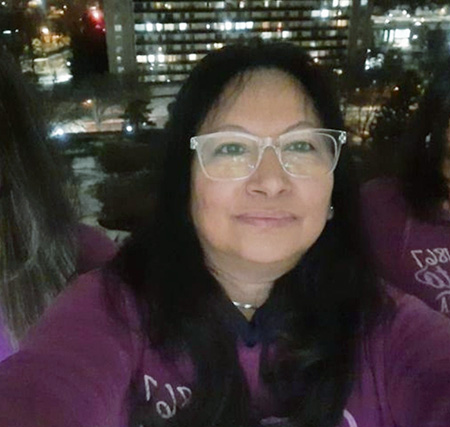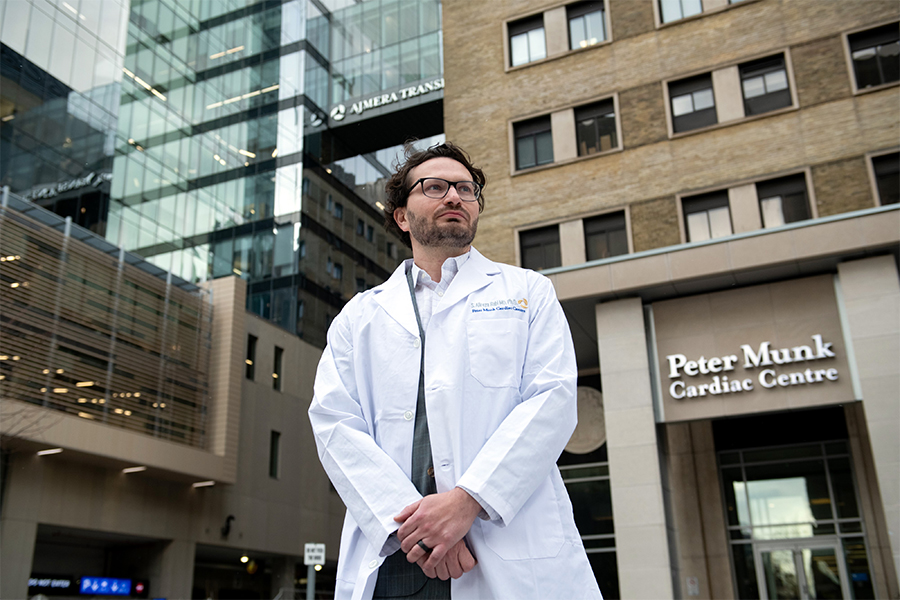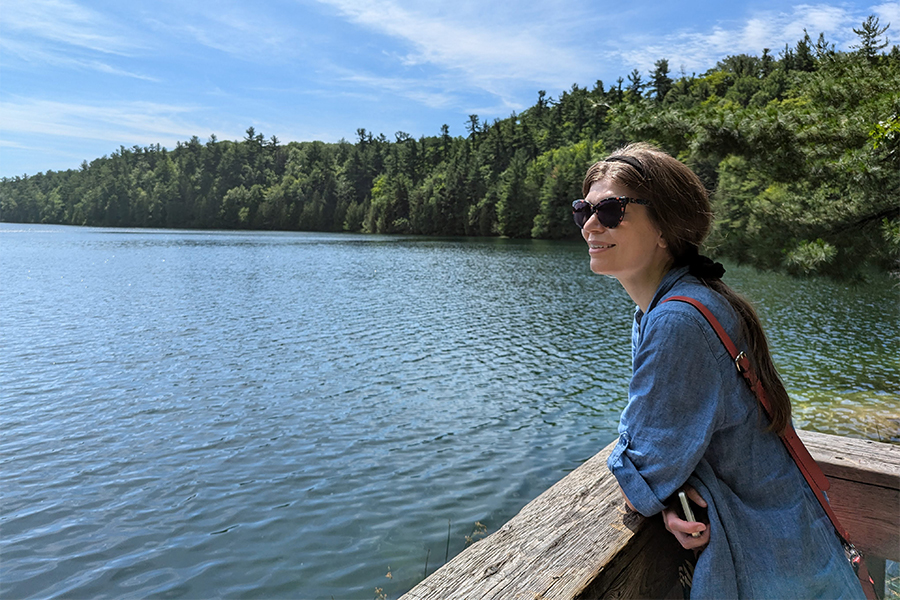
It took Gloria Stoney five days to get medevaced from her home in Peawanuck, an isolated Cree community near Hudson Bay in northern Ontario, to Toronto General Hospital.
Gloria was experiencing serious cardiac symptoms. She waited in the community’s nursing station.
“I didn’t feel so comfortable, but my family was there to take care of me and make sure I wasn’t alone,” says Gloria, who upon arrival in Toronto was immediately admitted for further work-up.
Gloria was able to go home for a short time using UHN’s Medly Program, a remote patient monitoring program for heart failure management. She was then flown out again, this time to Kingston, for more testing before finally returning home.
Bringing care closer to home for community members such as Gloria is at the heart of a new partnership between UHN’s Peter Munk Cardiac Centre and the Weeneebayko Area Health Authority (WAHA), which provides health care to six communities throughout the James Bay and Hudson Bay region, including Peawanuck. The majority of people living in the region’s coastal communities are Cree.
The five-year memorandum of understanding (MOU) will support the cardiovascular needs of James Bay and Hudson Bay communities with a focus on direct care and remote management.
This new agreement solidifies the WAHA-UHN partnership, which dates back to 2017. Through building local capacity and leveraging existing resources, the MOU supports both partners in bringing diagnostics and treatment as close to home as possible.
“Signing the MOU emphasizes WAHA and UHN’s joint dedication to enhancing cardiac care in the James and Hudson Bay region,” says Lynne Innes, WAHA’s President & Chief Executive Officer. “Together, we’re working to improve cardiac care delivery, making it more accessible while enhancing quality of life.
“This partnership is a significant example of how health equity can be advanced in Indigenous communities.”

Through the use of Traditional and Western strategies, WAHA provides care that is holistic, reflective of community needs and as close to home as possible.
As many communities in the region are remote with limited access to specialized cardiac care, travelling to access care is a necessity. Community members such as Gloria must travel 850 kilometres south by a combination of boat, train, plane and car.
“Leaving home for medical care is tough,” Lynne says. “It requires the coordination of many people and organizations, and for our clients, it can mean a lot of anxiety from having to navigate a different city and hospital, all while missing the comfort of home.
“It’s a journey of healing mixed with the struggle of being far away from what’s familiar.”
But what if we could improve access to culturally safe cardiovascular care in WAHA’s communities?
Dr. Heather Ross, Division Head of Cardiology at UHN’s Peter Munk Cardiac Centre, believes it could dramatically improve patient care and outcomes in the region. And, it’s something she is advocating for as the co-lead of TRANSFORM HF, a digital innovation for heart failure care supported by the University of Toronto and the Ted Rogers Centre for Heart Research.
“Digital innovation is the key,” Dr. Ross says. “It can provide access to health care services not historically offered in the region and that require clients to travel out of community.”
In fact, a recent community-based study in Moosonee found that community members are receptive to digital health tools, though they must be designed in a way that reflects their values and integrates Western and Indigenous approaches.
‘Medly benefits a lot of people here’
Under the new MOU, coordinated clinical care will involve regular in-person visits to WAHA’s six communities with use of the Medly Program for heart failure management. To date, more than 30 WAHA community members are Medly users – including Gloria, who’s been enrolled since the summer of 2023.
“Medly has been helpful,” says Gloria. “It saves me running to the clinic every time something happens.”
This is especially beneficial, as she explains the clinic can get very busy.
“You get a response right away, and someone reaches out to you when something is up,” adds Gloria, who says she also appreciates that her results are on file in the app, so when she needs to receive care out of community, she doesn’t need to re-explain her symptoms and management.
“I’m not the only one in Peawanuck with a heart issue. Medly benefits a lot of people here,” says Gloria.
The partners are also initiating a screening program for earlier detection and primary prevention of heart failure.
Additionally, the partnership will support ongoing community-based qualitative and quantitative research with a focus on field-testing digital devices, point-of-care testing and other innovations in community and on the land.
WAHA and UHN will also work together to build capacity in the community. Mentorship programs will facilitate exposure to clinical and research environments for the next generation of WAHA-based health care providers, and opportunities will be created for Toronto cardiology residents and fellows to participate in this collaboration through observerships.
“Working in community, with community, is so important – this MOU supports that,” says Dr. Ross.
“When you add in the layer of digital health and remote monitoring, I think we can support WAHA in keeping their community members healthy at home.”

No one ever changed the world on their own but when the bright minds at UHN work together with donors we can redefine the world of health care together.


